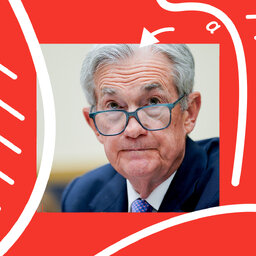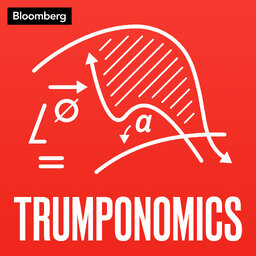Kai-Fu Lee on the Great Game to Dominate Data
Don't fret too much about tariffs and trade deficits. The real competition between the U.S. and China will be in artificial intelligence and data, says Kai-Fu Lee, author of "AI Superpowers: China, Silicon Valley and the New World Order." Lee explores who wins in this struggle for influence, and how it affects workers.
In 1 playlist(s)
Trumponomics
Tariffs, crypto, deregulation, tax cuts, protectionism, are just some of the things back on the tabl…Social links
Follow podcast
Recent clips

Nigel Farage at Davos: 'The Consensus Era Is Over'
26:59

Live from Davos: Greenland Shock Tests Europe’s Spine—and Strategy—at Davos
38:13

How the Powell Probe Could Blow Up Trump’s Fed Plans
26:25
 Trumponomics
Trumponomics